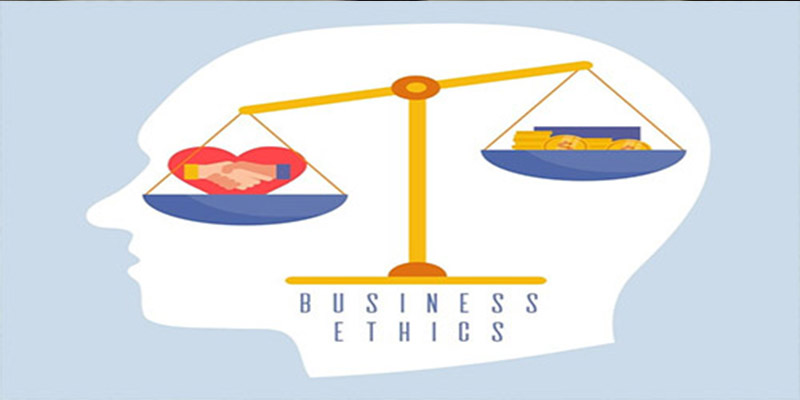

The surge of digital marketing, an offshoot of the burgeoning digital age, increasingly influences today's business landscape. As businesses leverage this powerful tool to engage with communication worldwide, the ethical considerations intrinsic to it are too important to ignore. This blog post unravels the complex tapestry of ethics in digital marketing, its significance, and how it shapes the bedrock of consumer trust, and brand reputation, and thereby unveils how to grow your business online or via digital marketing.
The first step towards understanding this subject matter is deciphering what 'digital marketing ethics' implies precisely.
Digital marketing ethics is the principled approach to online marketing and advertising initiatives. These principles uphold truthfulness, respect consumer privacy, promote fairness, and vehemently resist manipulative or exploitative strategies.
Ethics in digital marketing also extends beyond just the realm of moral obligations. It also integrates legal and professional requirements that companies must adhere to when marketing their products or services online. Many creative advertising agencies today make sure that their framework supports conducting digital marketing campaigns with honesty, transparency, and integrity, fostering a healthy and respectful relationship with consumers. Thus, be it a small-scale brochure design company, a leading social media marketing company, or a top SEO company in Bangalore or Brahmapur, following the ethics of digital marketing is a must.Digital marketing ethics shouldn't merely represent a ceremonial checkbox on the list of legal compliances. It must symbolize the conscientious pursuit of honesty, integrity, and respect for your customers. Ethical digital marketing isn't a one-way street but a bridge that encourages companies to adopt transparency and genuineness in their operations, thus establishing a reciprocal relationship between the brand and its consumer base.
Businesses that engage in ethical digital marketing practices shield themselves from potential damage—reputation loss, dwindling customer trust, and adverse financial impacts. At the same time, this approach unveils opportunities to establish a sincere connection with audiences, nurturing deeper trust and bolstering stronger brand loyalty.

Comprehending the ethics of digital marketing necessitates an acknowledgment of the most common ethical challenges. The following are some significant issues businesses must address:
The most prominent ethical concern in digital marketing revolves around privacy and data protection. Companies regularly handle sensitive customer data, which they must safeguard assiduously. Failure to do so can lead to severe legal and reputation repercussions
Transparency refers to the degree of openness a company demonstrates about its digital marketing practices. This transparency extends to acknowledging sponsored content, revealing affiliations, and providing comprehensive information on customer data usage.
The world of digital marketing offers boundless possibilities for creative advertising. However, the boundary separating persuasive from deceptive can be porous. Misleading or false advertising is unethical and can lead to stringent legal implications.
The potential for misuse of customer data is a serious ethical issue. Market segmentation based on income, race, or other factors can inadvertently lead to discrimination. For instance, lower-income groups might not receive ads for essential products or services, creating an ethical problem.
Negative SEO is a practice where businesses use unethical tactics to harm their competitors' search rankings. These techniques include hacking websites, building unnatural links, copying content, etc. This approach is an outright violation of the ethics of digital marketing.
Comprehending the ethics of digital marketing necessitates an acknowledgment of the most common ethical challenges. The following are some significant issues businesses must address:
The most prominent ethical concern in digital marketing revolves around privacy and data protection. Companies regularly handle sensitive customer data, which they must safeguard assiduously. Failure to do so can lead to severe legal and reputation repercussions.
Transparency refers to the degree of openness a company demonstrates about its digital marketing practices. This transparency extends to acknowledging sponsored content, revealing affiliations, and providing comprehensive information on customer data usage.

The world of digital marketing offers boundless possibilities for creative advertising. However, the boundary separating persuasive from deceptive can be porous. Misleading or false advertising is unethical and can lead to stringent legal implications.
The potential for misuse of customer data is a serious ethical issue. Market segmentation based on income, race, or other factors can inadvertently lead to discrimination. For instance, lower-income groups might not receive ads for essential products or services, creating an ethical problem.
Negative SEO is a practice where businesses use unethical tactics to harm their competitors' search rankings. These techniques include hacking websites, building unnatural links, copying content, etc. This approach is an outright violation of the ethics of digital marketing.
Embracing ethics in digital marketing requires a comprehensive understanding of a business's unique challenges and contexts. Here are some foundational principles that guide businesses toward ethical digital marketing. In other words, let's dig into the ethics of digital marketing in today’s contemporary world:
Endeavor to maintain openness and honesty about your digital marketing practices. Acknowledge sponsorships and affiliations candidly, and clarify how customer data is used and protected.
Privacy is a fundamental right. Make sure that you obtain explicit consent before collecting and utilizing personal information. Secure the collected data appropriately and protect it against potential threats.
Avoid deceptive or misleading advertising. Strive for honesty and accuracy in your marketing content. Upholding truthfulness in digital marketing reinforces trust and loyalty among customers.
Ensure that your digital marketing strategies foster equality and do not discriminate. Create inclusive and representative content, making your products and services accessible to all, regardless of their demographics.
Ensure that your SEO practices align with the guidelines provided by search engines. Avoid tactics that manipulate these guidelines for short-term gains
When upheld, ethics in digital marketing creates a robust, positive relationship with consumers, leading to trust, loyalty, and positive word-of-mouth—a powerful testimonial in the business world. A reputation for ethical digital marketing can set a brand apart in a saturated market. In an era where consumers are increasingly conscious about the companies they support, practicing ethical digital marketing can make your brand a beacon for all the right reasons.
Moreover, ethical digital marketing practices impact long-term profitability and success. The initial investment of time and resources pays off multifold by fostering a healthy relationship with consumers. This relationship, in turn, fuels trust and loyalty, directly contributing to business growth and a robust brand image. Thus, it is inevitable for every business to stay abreast of the ethics of digital marketing to establish a strong presence in today’s digital era.
The ethics of digital marketing is an indispensable component of modern business strategy. With the advent of the digital age, consumers' expectations have shifted—they now demand transparency and ethical conduct. Therefore, businesses must meet these expectations by upholding high ethical standards in their digital marketing endeavors.
From respecting privacy and data protection to transparency and avoiding misleading advertising, ethical digital marketing is not just about moral obligations but also competent business practice. It builds trust, customer loyalty, and a strong brand image, all leading to increased profitability and success in the long term.
In conclusion, as the world moves further into the digital age, it's clear that digital marketing ethics will continue to play an increasingly pivotal role in shaping businesses' future. It's now more crucial than ever for businesses to embrace these principles, uphold the highest ethical standards in their digital marketing practices, and contribute to a more trustworthy, fair, and transparent digital marketing landscape.
To make things easier the best shortcut is to resort to expert digital marketing agencies in Bangalore and other fast-growing metropolitan cities as they are bound to stay abreast of the “ethics of digital marketing” today.
FAQ’s
Common ethical issues in digital marketing include:
Companies can ensure ethical digital marketing by prioritizing transparency, respecting privacy, being truthful in their advertising, promoting equality and fairness, and adopting ethical SEO practices.
The long-term impacts of ethical digital marketing include the following:
Ethical digital marketing fosters a genuine and respectful relationship with consumers, which can translate into increased business growth.